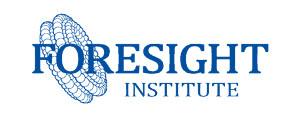

We’re humbled to gather not one but three individuals who have been pre-eminent luminaries in their fields for 30 years to discuss their alternative approaches to the current AI paradigm:
Eric Drexler:
Dr. Drexler is widely known for his seminal studies of advanced nanosystems and scalable atomically precise manufacturing (APM), a prospective technology using arrays of nanoscale devices to guide chemically-reactive molecular encounters, thereby structuring matter from the bottom up. Dr. Drexler’s current research explores prospects for advanced AI technologies from the perspective of structured systems development, potential applications, and global implications. Key considerations in this work include advances in AI-enabled automation of AI research and development, and the potential role of thorough automation in accelerated development of comprehensive AI services.
Mark S. Miller:
Mark S. Miller is a pioneer of agoric (market-based secure distributed) computing and smart contracts, the main designer of the E and Dr. SES distributed persistent object-capability programming languages, inventor of Miller Columns, an architect of the Xanadu hypertext publishing system, a representative to the EcmaScript committee, a former Google research scientist and member of the WebAssembly (Wasm) group, and a senior fellow of the Foresight Institute. Eric and Mark co-authored the Agoric Papers, which have recently received substantial attention in the cryptocommerce community, 30 years after their initial release.
Robin Hanson:
Robin Hanson is associate professor of economics at George Mason University and research associate at the Future of Humanity Institute of Oxford University. Oxford University Press published his book The Age of Em: Work, Love and Life When Robots Rule the Earth in June 2016, and his book The Elephant in the Brain: Hidden Motives in Everyday Life, co-authored with Kevin Simler, in January, 2018. Professor Hanson has 900 media mentions, given 350 invited talks, and his blog OvercomingBias.com has had eight million visits. He has pioneered prediction markets since 1988 and suggests “futarchy”, a form of governance based on prediction markets. He was a principal architect of the first internal corporate markets, at Xanadu, of the first web markets, the Foresight Exchange, of DARPA’s Policy Analysis Market, and of IARPA’s combinatorial markets DAGGRE and SCICAST. He coined the phrase “The Great Filter” as part of an effort to understand why the universe looks so dead.
Their ideas are now more relevant than ever:
What is unique and uniting about those approaches?
They all outline possible positive scenarios, in which artificial and human entities co-exist in a multipolar framework, avoiding potential risks of aligning one generally intelligent singleton with human values.
Join us for this rare opportunity to distill parallels and conflicts amongst these approaches and find out how they may shape the mainstream paradigm in AI.
Light snacks and drinks will be provided.
***
Please message us two days in advance if you will need childcare.
This event is part of our Strengthening Civilization salon series. Watch all previous Strenghtening Civilization salons.
Your ticket goes towards supporting Foresight Institute’s mission to advance transformative technology towards futures beneficial to life and the biosphere. If that’s not something you are currently able to contribute to, do still join. No one will be turned away for lack of funds. To benefit from sliding scale tickets, reach out to us.
Foresight Institute, and generously hosted by Academia.edu.
Academia.edu: Guided by a mission to accelerate the world’s research, Academia.edu aims to make every academic paper ever published available for free online and accessible by anyone. The platform now has over 75 million global users and hosts over 23 million academic papers. Academia.edu was founded in 2008 in San Francisco by Richard Price who recognized the need for open access of scholarly work while he was a doctoral candidate in philosophy at Oxford University.
Foresight Institute, your favorite non-profit steering technologies of fundamental importance towards futures of Existential Hope, focusing on molecular machine nanotechnology, cybersecurity, artificial intelligence.
Learn about future Foresight events via our Newsletter.
Watch all previous Strenghtening Civilization salons.
>> If you find this content valuable, you may use this link to share this email. <<
Join our movement! Follow our Facebook page, Twitter or connect to our professional network on Linkedin for regular updates, as well as invites to our upcoming events. To get an overview of the different ways to accelerate our mission, we created a one-pager on Getting Involved.
That said, one of the ways that you can most immediately help is to support our mission financially. For a detailed summary of what your donations accomplish, see our Progress Report for 2018: Accomplishments and concrete 2019 plans.
Thank you,
Foresight Institute